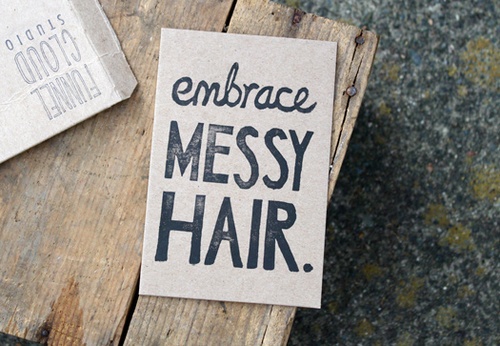There is a popular meme going around on Facebook that reads, “If you say pumpkin spice latte three times in a mirror, a white girl in yoga pants will appear.”
I, and many others I know, had a good laugh at that.
Despite the fact that yoga originated in India, the stereotype of most yoga practitioners—in the West at least—is that they are all young, white and female.
That same stereotype also applies to yoga teachers.
Despite the fact that I have been taught by teachers of all sizes, shapes and colors, many seem to have an idea of what a yoga teacher “should” look like. I became aware of this years ago when I overheard a conversation in a regular yoga class I attended.
Two women seated near me remarked how wonderful the teacher was, but noted that she did not look like a “typical” instructor. Intrigued, I couldn’t help but ask what they meant by that. “Oh, you know. She’s just doesn’t have that ‘look’.”
It was true. Compared to the other instructors at the studio who were overwhelmingly young and twig-like and clad head to toe in Lululemon, she didn’t look a lot like them.
In fact, she kind of looked like me, in non-descriptive workout clothing and a messy ponytail.
The idea of what a yoga instructor “should” look like came up again when I did my teacher training. Not only was I the only person of color in my group, but I failed to master “the look.” Try as I might, I could not maintain a sleek ponytail or keep a consistently serene look on my face to save my life.
Plus, all the Lululemon in the world couldn’t change the fact that in a world of sleek, willowly instructors I was short and stumpy looking.
At first, the mere idea that I was obsessing so much over how I looked was mortifying to me. It just seemed so shallow, so anti-yoga. Also, the irony that I wanted my classes to welcome the sort of students that usually were not stereotypical of yoga-i.e., those that were out-of-shape, those that were plus-sized, etc.-was not lost on me.
However, whether it was merely my own projection or overly sensitive feelings on the matter, I did notice some comments in those first years of teaching.
On more than a few occasions, new students expressed genuine surprise that I was the instructor.
On another, a student came up to me after class and remarked that while he had enjoyed the class, it would have been nice had a smiled a bit more. (Apparently, I was sufferer of Bitchy Resting Face Syndrome and just did not know it at the time.)
All joking aside, I had to admit that sometimes it frustrated me. Teaching was and should have been my main focus. All this other stuff about looking a certain way was too much. How did they expect me to do that?
Then it hit me. Who was “they”? Was the Yoga Alliance threatening to revoke my membership? Had I ever been fired from a studio because my hair was frizzy?
The short answer was no.
Like so many, I had bought into the idea that yoga teachers were supposed to look a certain way. I hated it, but at the same I was contributing to it.
Also, I was guilty of saying one thing and doing another: I was constantly telling my students who were overweight, out-of-shape, etc. that it did not matter what they looked like, but worried about how I looked to them.
I would like to say that after this, I never obsessed about my appearance again and focused completely on my teaching and practice, but that would be lying.
I still notice at times that I don’t look like I really belong, but then I remember that it doesn’t matter. Just by being here, I do belong.
As someone pointed out in a recent post here, no one owns yoga. Just because a few clever companies have attempted to brand it and created a stereotype that many associate with yoga does not mean that they can claim it.
In some ways, I think the fact that I don’t look like the “typical” instructor makes me more relatable to my students.
My appearance mirrors who I am: I don’t live a “perfect” life. I don’t have loads of money or a jet-setting lifestyle.
Instead, I consider myself a working mother who often struggles to find enough time to do all the essentials and still have time to pursue things like a yoga practice.
Plus, in my experience, most of my students don’t notice what I look like. Indeed, they shouldn’t.
After all, the focus of their practice should be about them and not what their yoga instructor looks like. If they leave feeling better than when they entered, then I have done my job.
Perfect ponytail be damned.
Like elephant yoga on Facebook.
Ed: Bryonie Wise
 Share on bsky
Share on bsky





Read 11 comments and reply